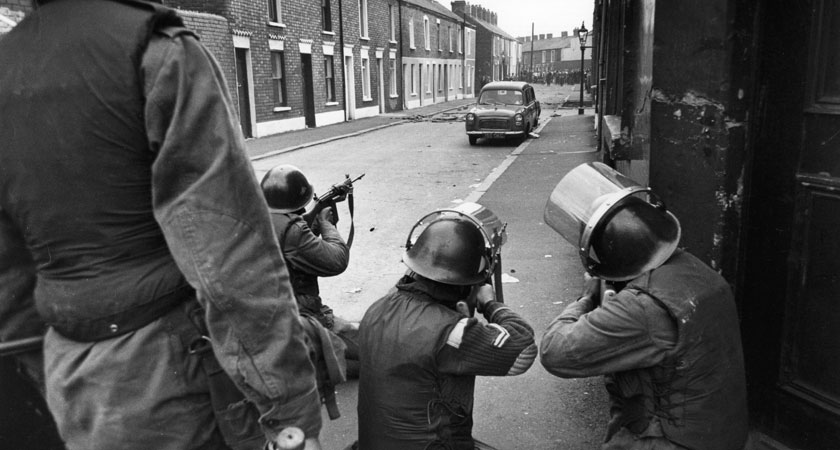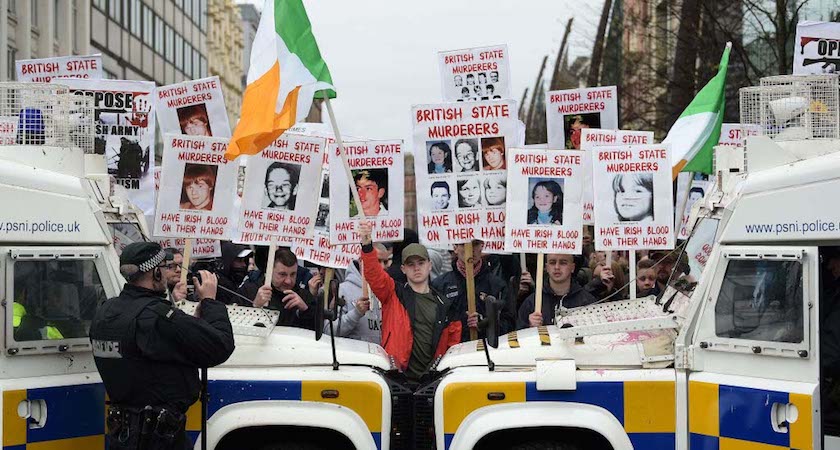A CLEAR MAJORITY of respondents to a UK Government consultation on dealing with the legacy of the Troubles oppose an amnesty for veterans who served in Northern Ireland.
The public consultation, conducted between May and October last year, did not ask a specific question about a so-called "statue of limitations" on prosecutions to prevent former soldiers from being charged with alleged offences – a controversial proposal which has received widespread support from Conservative MPs.
However, a summary of the 17,500 responses to the consultation – published on Friday – states that a "clear majority" of all respondents agreed that a statute of limitations or amnesty "would not be appropriate" for Troubles-related matters.
It adds: "Many were clear that victims, survivors and families are entitled to pursue criminal justice outcomes and such a move could risk progress towards reconciliation."
Proposals
Respondents to the consultation included political parties, victims groups and organisations representing military veterans.
They were asked for their views on a series of proposals, including a new Historical Investigations Unit (HIU) and an Independent Commission on Information Retrieval (ICIR) to investigate, document and uncover the truth about killings during the Troubles.
The proposals were agreed by the Northern Ireland Executive, the UK Government and the Irish Government in the 2014 Stormont House Agreement – but their implementation has stalled due to the breakdown of power-sharing in Belfast.
Respondents expressed the strong view that the proposed investigative mechanisms "must be fair and not favour any particular group", with many concerned that they could instead be "one-sided in favour of terrorist groups" and weighted against former members of the security forces.
The respondents also pointed to the "discrepancy" between the treatment of veterans and paramilitaries who benefited from the Good Friday Agreement early prison release scheme and so-called "on-the-run" letters assuring fugitives they would not face prosecution.
Many were of the view that more should be done to protect ex-servicemen, while a minority argued that an amnesty should be implemented after all to help Northern Ireland move on by avoiding divisions which could be stirred by legacy prosecutions.
In contrast, several organisations representing veterans argued against any type of statute of limitation or amnesty as they believe those they represent would have no difficulty answering for their actions during the Troubles.
And a large number were in favour of better financial support for Troubles victims, including a pension for those seriously injured physically or psychologically.
However, it will ultimately be the new UK Prime Minister who decides how to proceed on the issue.
'Walls of silence'
Responding to the consultation summary's release, Ulster Unionist MLA Doug Beattie – a former British Army Captain – said: "No one in Northern Ireland wants a statute of limitations and they certainly don't want an amnesty and I think that's because we still live it here in Northern Ireland.
"But sometimes, there's a slightly different view across in the mainland where they don't see it as something quite so close to home.
"It's a bit more of a distant conflict and they don't live it every day and they may have more of a say about wanting to protect veterans."
Mark Thompson from Relatives for Justice said: "Resorting to walls of silence, closing ranks, lack of corporate memory by any of the conflict actors or relying on national security as a smothering blanket is not the way forward."
To view the Northern Ireland Office's consultation summary in full click here



